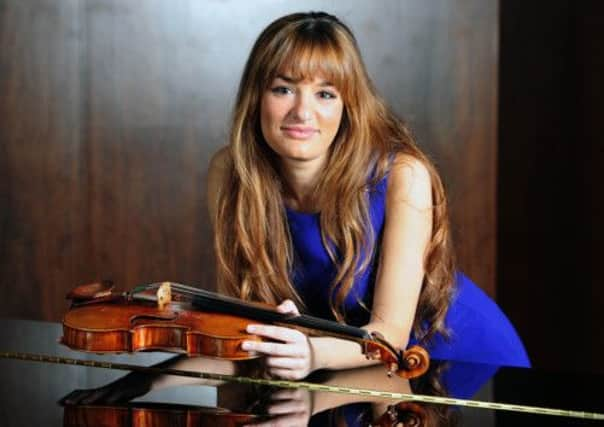Tuition fees for SQA music exams scrapped


Five local authorities in Scotland have been charging S4 to S6 students sitting SQA music exams instrumental tuition fees of up to £340 a year, even though the exams are part of the national curriculum and playing an instrument counts for up to 60 per cent of the final mark. They will end the practice from this August.
The move comes after Scotland on Sunday’s Let the Children Play campaign highlighted the issue as part of its campaign to scrap instrumental tuition fees in schools across Scotland, where a postcode lottery system means children can be charged between £95 and £340 to learn a musical instrument – something that was once free to all.
Advertisement
Hide AdAdvertisement
Hide AdIt also comes as the campaign notches up another victory, with a decision by one local authority, Dundee City Council, to end instrumental tuition fees in schools altogether.
The scrapping of SQA tuition charges forms part of a report of 17 recommendations that will be made to the Scottish Government this week by the instrumental music group – a parliamentary working group set up in January by education secretary Mike Russell in order to “get a grip” on instrumental music tuition in Scotland.
It was created in response to this newspaper’s campaigning on the issue, which sparked a parliamentary debate, investigations into charging practices and the setting up of a £1 million instrument fund for schools. The campaign also received high-profile support from musicians, including Dame Evelyn Glennie, Nicola Benedetti and Frightened Rabbit as well as Tam Baillie, Scotland’s children’s commissioner.
Two councils – Dumfries and Galloway and Midlothian – signalled earlier this year that they would stop charging for SQA music pupils. However, a further three – Highland, Aberdeen City and Renfrewshire – continued to impose the fees, despite questions over their legality by senior politicians and education officials. They will now stop charges in August, ending the practice in Scotland for good.
Minister for learning Alasdair Allan said: “No student should be denied the chance to develop their musical talent due to their background or location.
“The removal of these charges allows all pupils to enjoy the benefits of instrumental musical education and achieve qualifications without facing fees – just like every other qualification subject.”
The announcement comes as Dundee City Council becomes the second local authority in Scotland to scrap all instrumental music tuition fees in schools.
The council, which currently charges £132 a year for a child to learn a musical instrument, is expected to drop the fees at a meeting of its education committee tomorrow. However, an £82 charge for instrument hire will remain in place.
Advertisement
Hide AdAdvertisement
Hide AdIt will become the second local authority to do so this year after Dumfries and Galloway dropped all charges in April.
It means there are now ten councils in Scotland that provide free instrumental music tuition for school children, while 22 continue to charge between £95 and £340 for lessons.
Dundee MSP Jenny Marra, who has backed Scotland on Sunday’s campaign, said she supported the move. “I am pleased that Dundee City Council is taking steps to address the inequality in instrumental tuition in Dundee,” she said.
“It is a good first step that we should build on to give the 12,000 children in Dundee who live in deprivation the rich opportunities that music brings.”
Chairman of the instrumental music group David Green said: “There was a groundswell of concern over charging for SQAs.
“There was cross-party support, as well as considerable concern within the wider music education community. It does not occur in any other subject and removing these charges means every child will have a fair chance.”
SEE ALSO: